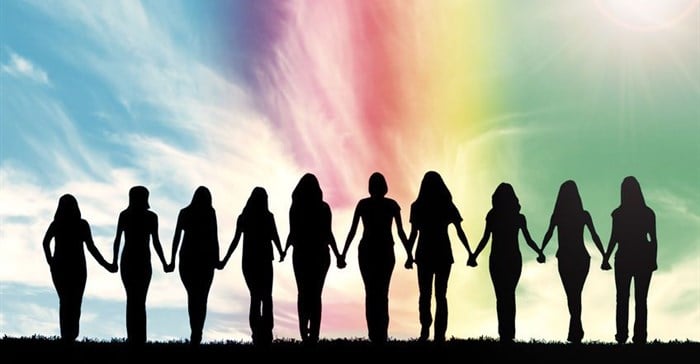
The project focused on postgraduate students from the University of the Free State (UFS) and was completed by its Higher Education and Human Development (HEHD) group. The students are from diverse biographies and varied experiences of voice and inclusion or marginalisation.
The methodologies let them exercise agency, creativity, imagination, mobilising knowledge, and learning new and empowering digital skills.
In the inspiring, heart-warming, and sometimes personal videos, they talk about everyday struggles that South Africans deal with, including gender-based violence (GBV), overcoming adversity and hardship, sexual harassment, and working hard to achieve your goals and ultimately becoming successful.
Dr Carmen Martinez-Vargas, a postdoctoral fellow in HEHD and one of the researchers on the project, says that participatory storytelling was utilised as methodology and as a space of decolonisation for a rich ecology of knowledge.
“In this project, the methodology was central.
“A key political goal for participatory research has to do with the fact that it is typically those with less power who speak through the research process, deliberately including the ‘investigated’ in the process of investigation itself, with methods that are ethical, open, respectful, and alert to power dynamics.
“Therefore, participatory approaches aim at doing research with and alongside rather than on and about,” she explains.
The research process involved students working face to face for the first group, and online for the second group after the Covid lockdown, producing 12 compelling and moving individual digital stories, and thereafter as a group to make a participatory video.
Analysis of the stories in relation to social justice knowledge was done online as a research collective, and dissemination activities were planned together.
The project has been disseminated through webinars, the project website, and through social media, while an open access book is planned for completion in 2022.
The project demonstrates the possibilities of a decolonial participatory methodology to create inclusive epistemic and research communities as well as substantive knowledge from the stories as a contribution to a South-based ecology of knowledge. It enabled the empowerment and agency of student co-researchers in the process of co-researching to understand and change together.
The objectives of the project were to identify ways in which the youth can work together to shape stories of transformation for sustainable social justice and to encourage inclusive, co-constructed knowledge-making.
Other objectives were to engage diverse stakeholders nationally and internationally on youth voices for social justice using digital story methods, and to develop new ways of thinking about, and practices for doing youth-led social justice development.
The research team set out to answer these key questions:
The project also shows how the youth can shape stories of inclusive transformation for bottom-up change and can contribute substantive knowledge to our understanding of social justice.
The project has attracted a great deal of attention, especially internationally. A national webinar (on gender-based violence) has been held and the researchers contributed to an international webinar, hosted by the Human Development and Capability Association.
Prof Melanie Walker, who is the SARCHI Chair in Higher Education and Human Development (HEHD), says research in the HEHD group focuses on the contribution of higher education to well-being and human flourishing in sub-Saharan Africa.
“The concern is with advancing justice in and through higher education policy, processes, and practices, and at multiple levels of the higher education system.”
Currently, there are 16 research and publication projects: five PhD projects, six post-doctoral fellow projects, and five externally funded projects. "Together, these and previously completed projects make a substantial contribution to rigorous South-based social sciences scholarship", says Walker.
The group of 12 graduate student co-researchers were Luvuyo Ngobeni, Natasha Kabaso, Cheri Matjila, Ntombi Nhlapo, Getrude Jana, Nontobeko Mathebula, Angel Zungu, Christiaan Botha, Nhlanhla Mgobhozi, Jeremiah Hlahla, Neliswa Emeni Tientcheu, and Moroesi Talita Makape.
The project was funded by Walker’s SARCHI Chair.
Read more on this project here